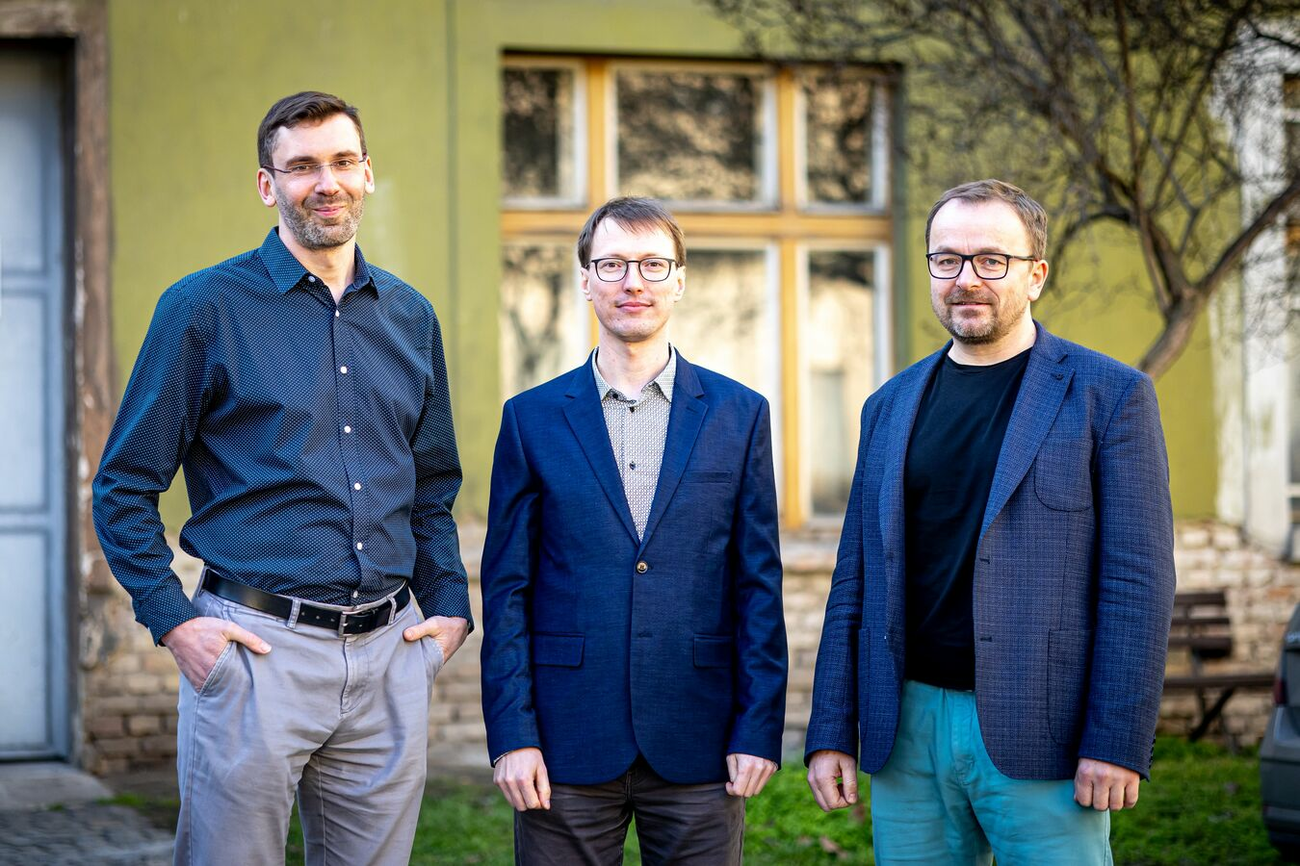Photo by Siemens
In the picture: dr. Jiří Zemánek, dr. Tomáš Michálek, doc. Zdeněk Hurák
The Czech Siemens, in cooperation with leading Czech universities and the Academy of Sciences of the Czech Republic, awards the best students and teachers in engineering and science every year. In terms of their scope and the amount of financial reward, prizes are among the most important initiatives of their kind in the Czech Republic.
Michálek's dissertation "Micromanipulation by Dielectrophoresis - Modelling and Control Based on Real-Time Optimisation" placed first in the graduate thesis category on Industry 4.0.
In his work, he created a mathematical model and control algorithms based on it, thanks to which it is possible to automate the manipulation of micro-objects of various shapes and sizes in the order of units to hundreds of micrometers, such as biological cells or technological components. "If we tried to grasp such a small object with a classic manipulator, such as a micro-robotic arm, it would stick to it and would not be released. That's why we chose a non-contact approach," Tomáš Michálek describes the principle in the attached medallion below.
Contribution to the field of medicine and component assembly
The principle finds application, for example, in the study of diseases, the development of new drugs, single-cell manipulation, or manufacturing processes such as assembling complex products from small, simple components. "The work is also unique from a global perspective because it brings a system view of cybernetic disciplines such as automatic control and robotics to a field originally developed by physicists, chemists, and biologists. This has made it possible to demonstrate arbitrary manipulation of selected objects," appreciates the contribution of the work Michálek's supervisor, Associate Professor Zdeněk Hurák.
According to him, Michálek's contribution is also unique in the possibilities of automatic manipulation. The principle allows something that other principles of automated manipulation do not have. "This new principle allows, for example, parallel manipulation of multiple objects without contact," Hurák explained.
M.Sc. Steffen Kortmann from the Czech Technical University in Prague and RWTH Aachen University received an honorable mention for his thesis entitled Integrating flexibility and characteristics of active distribution grids into a large-scale European multi-energy system model.
Other achievements of the Faculty of Electrical Engineering
Graduates of FEE CTU have already appeared among the award winners several times. Two years ago, Lukáš Janota, a student of the Electrical Engineering, Energy Engineering and Management (EEM) programme, won the prize. In his diploma thesis under the supervision of Dr. Tomáš Králík, Janota investigated the possibilities of future development of energy utilization of discarded battery cells from electric vehicles. A year earlier, the prize was awarded to Denis Rozumnyi, a student of the Open Informatics (OI) programme, with his master thesis entitled "Long-term all-speed tracker using blurring", supervised by Prof. Jiří Matas. In 2019, Ph.D. student Libor Bukata and graduate student from the Cybernetics and Robotics programme Jan Filip succeeded in the competition.
The Werner von Siemens Prize aims to support the development of Czech education and science and to motivate outstanding students to stay in the Czech Republic after graduation. In addition, it encourages efforts to put new knowledge into practice as quickly as possible. Along with the students, the prize is also awarded to their supervisors and thesis supervisors. This contributes to raising the prestige of the teaching profession.
This year was the 25th anniversary year. This time, the members of the expert juries chose from 493 applications, with 19 winners sharing one million crowns. "The prosperity of our country depends on quality education. "By organising a competition that recognises and makes visible students and teachers who have achieved exceptional results, we contribute to this goal," said Eduard Palíšek, CEO of Siemens Czech Republic.


